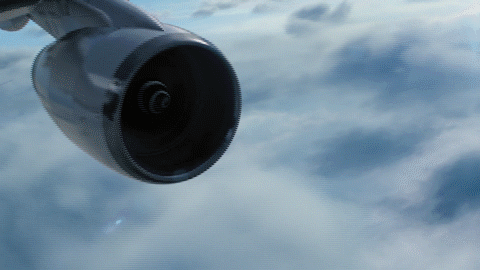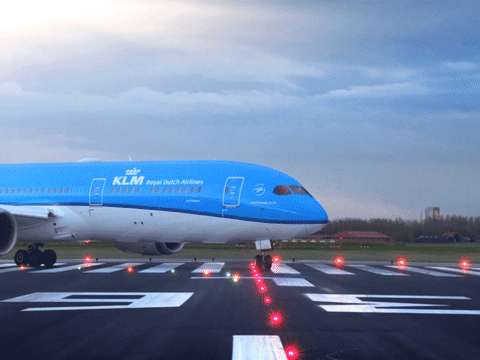Why fly?

Can researchers maintain their nternational careers without flying? Yes, according to Louise Thomsen, co-initiator of recommendations on how to take fewer business flights and reduce CBS’ CO2 emissions. The recommendations suggest that staff should report emissions related to each of their flights.
The message is repeated again and again in the media. Our extended weekend trips to New York, short visits to European capitals, and long-haul flights are an unsustainable practice that we must change. And “we” also includes researchers.
Louise Thomsen, Centre Manager at CBS Sustainability and member of the SDG Task Force at CBS has co-initiated a list of recommendations (Recommendation on CBS Flight Sustainability Policy ) on how to reduce the number of business flights at CBS and thereby reduce the overall CO2 emissions.
“The recommendations don’t say what you can and cannot do. They don’t say that individual researchers should reduce their flights to a maximum of two overseas flights. Instead, we want to motivate and encourage people to fly less,” says Louise Thomsen, who hopes that two departments will adopt the recommendations this year to see which initiatives are most effective.
The recommendations identify several ways of limiting flying. For example, if a conference takes place in Gothenburg, it is worth also consulting train schedules.
“It is a trend to think about flying as a luxury, but instead we should think about the hassle it is to arrive in the airport with all the people and all the waiting time, in reality it is much more relaxing to take the train,” says Louise Thomsen.
The recommendations also suggest that researchers planning to participate in workshop, seminars, or conferences as part of research networking or research projects should “prioritize whether video or Skype conferencing can provide an alternative to flying or indeed a way of avoiding travelling”.
“Some would say that as an internationally renowned business university, we can’t fly less. But I say we should challenge that view. I believe you can have a great research career without constantly flying abroad. I know of several colleagues at CBS and other universities in Scandinavia who have excellent academic careers, but prioritize to not fly,” says Louise Thomsen adding:
“We are not trying to limit researchers’ options. We just want to adopt a more eco-friendly and reasonable approach.”
The recommendations draw inspiration from the University of Lund, for example, which has its own travel policy. Not recommendations, but a policy. The overall objective of the recommendations is to inspire and motivate colleagues and the senior management to consider how they travel, underlines the SDG Task Force.
Economy over environment
For the recommendations to have a measurable effect, CBS must know its baseline, points out Louise Thomsen. What damage is currently being caused by CBS flights; how much CO2 is CBS ‘producing’ on its business flights?
One way to measure this is via the website Atmosfair. The website’s calculator is recommended by the SDG Task Force, as it takes all emissions into consideration and includes differences between airlines. When procuring an airline ticket, all employees can report the estimated CO2 emissions.
“Once we have a baseline for a specific period of time, either for an individual department or CBS as a whole, we can start trying out different initiatives to reduce our baseline emissions,” says Louise Thomsen.
She also explains that if a faculty member has to travel by plane, it is better, though not always the cheaper, to choose direct flights, as they emit less CO2.
“Right now, we have a financial argument for not acting sustainably. On the other hand, how many researchers are interested in two layovers if they can book a direct flight?” she says.
The recommendations suggest that CBS should allocate funds to cover the difference between the flights.
Ditch Harvard
What if CBS researchers manage to take fewer business flights, but instead invite more people to visit CBS by plane? Then what does it really matter?
“We often think we have to fly in a professor from Harvard as a keynote speaker for conferences, workshops, or seminars. But in fact, we have many fantastic and skilled colleagues at CBS, in Denmark and in Scandinavia,” she says and continues:
“Let’s take a look within our own borders when hosting an event. Would someone here at CBS fit the bill?.”
The SDG Task Force stresses that CBS staff should not view the recommendations, which are just that – recommendations – as a restraint that will limit their work.
“The recommendations don’t mean you shouldn’t travel and make a difference, but just reflect on the value created by attending a conference, seminar, or workshop outside Denmark,” she says.




































































































































Comments